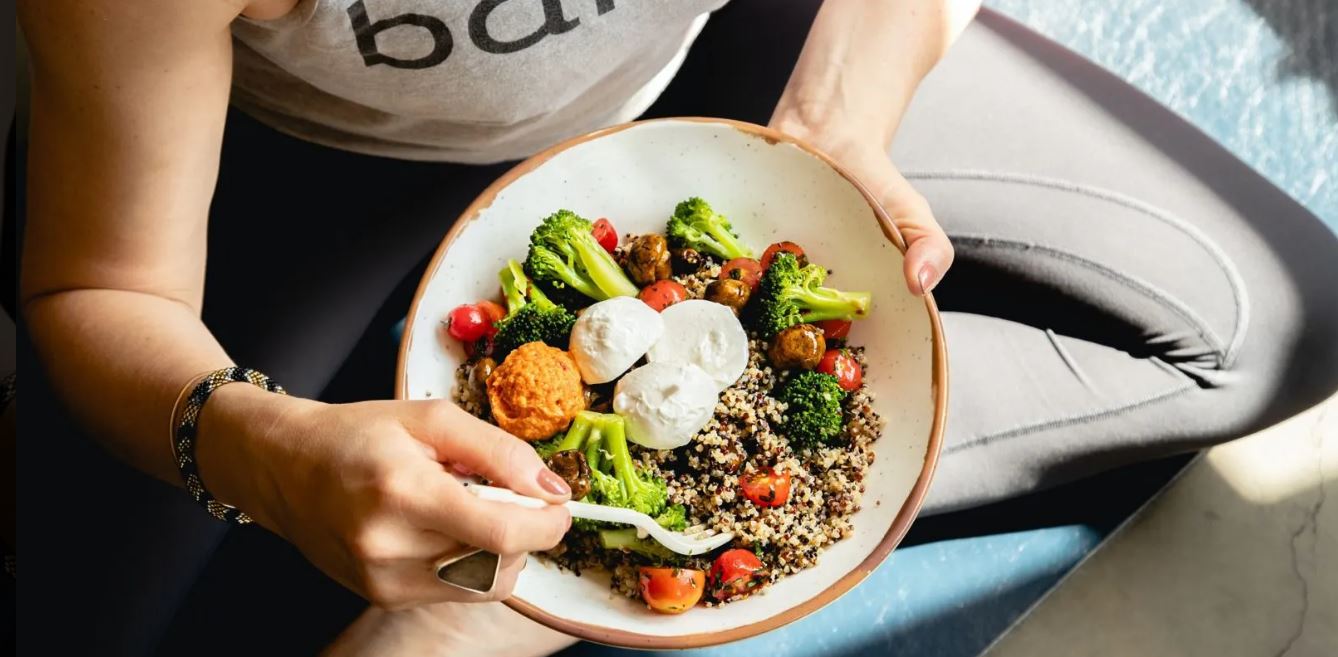What is Healthy Food Mean
Food isn’t just sustenance; it’s a toolbox for optimizing your health and well-being. By understanding how different foods impact your body, you can tailor your diet to address specific needs. This article delves into the best healthy foods for various use cases, empowering you to make informed choices for a healthier you.
Sharpening Your Mind

- Fatty Fish: Packed with Omega-3s, salmon, sardines, and mackerel aren’t just tasty, they support cognitive function, memory, and learning. These essential fats play a crucial role in brain cell development and communication, keeping your mind sharp.
- Nuts and Seeds: Almonds, walnuts, and chia seeds are more than just crunchy snacks. They provide a trifecta of brain-boosting benefits: healthy fats, fiber, and Vitamin E. Healthy fats fuel brain function, fiber keeps you feeling full and focused, and Vitamin E acts as an antioxidant, protecting brain cells from damage.
- Berries: Don’t underestimate the power of a colorful bowl of berries. Blueberries and strawberries are rich in antioxidants called anthocyanins, which protect brain cells from oxidative stress and may improve memory and learning.
Energizing Your Day

- Whole Grains: Ditch the refined carbs and opt for whole grains like brown rice, quinoa, and whole-wheat bread. These complex carbohydrates provide sustained energy release, thanks to their fiber content. Fiber slows down the digestion of sugars, preventing blood sugar spikes and crashes that leave you feeling sluggish.
- Greek Yogurt: A delicious and versatile source of protein and slow-digesting carbohydrates, Greek yogurt keeps you feeling fuller for longer, preventing energy crashes. Unlike sugary yogurts, Greek yogurt provides sustained energy without the jitters. Pair it with berries for an added antioxidant boost.
- Fruits: Mother Nature’s candy isn’t just a treat; it’s a natural source of energy. Bananas, apples, and oranges offer readily available natural sugars and vitamins for a quick energy boost. The best part? They’re portable and convenient, making them perfect for a pre-workout snack or a midday pick-me-up.
Building and Repairing
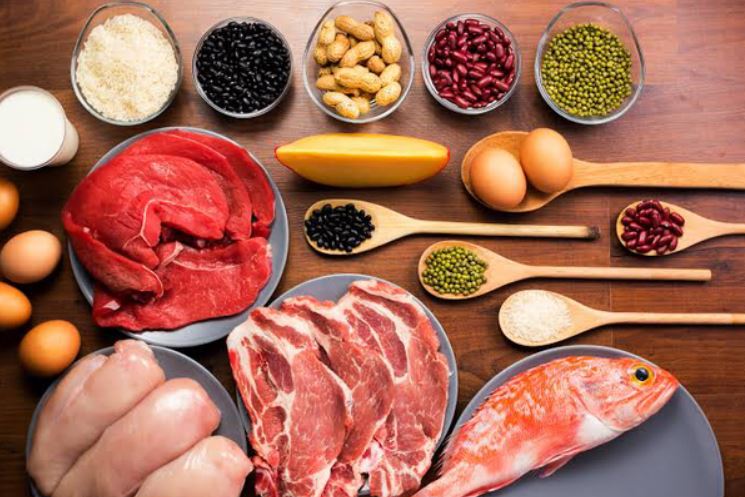
- Lean Protein: Whether you’re a gym enthusiast or simply want to maintain muscle mass, lean protein is essential for muscle growth and repair. Chicken breast, fish, and legumes are all excellent sources of complete protein, containing all the essential amino acids your body needs to build and repair tissues.
- Eggs: A nutritional powerhouse, eggs are a complete protein source, providing all the essential amino acids your body needs to build muscle. They’re also loaded with choline, a vital nutrient for brain health (Know more) and cell function.
- Healthy Fats: Don’t be afraid of fats! Avocados, nuts, and seeds offer healthy fats that play a supporting role in muscle building. These fats support hormone production and nutrient absorption, both crucial for muscle growth and overall health.
Slimming Down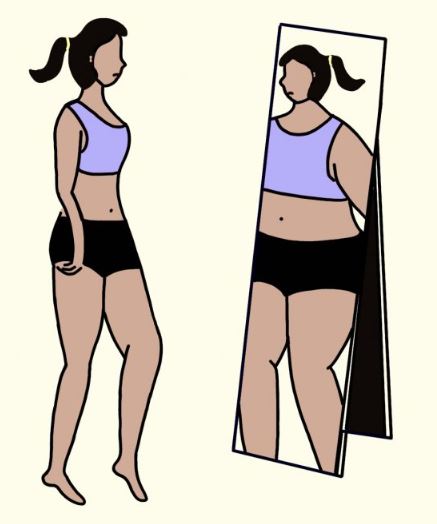
- Vegetables: They’re not just colorful side dishes; vegetables are powerhouses for weight management. Low in calories and high in fiber, vegetables like broccoli, spinach, and carrots promote satiety and help manage weight. Fiber keeps you feeling full for longer, reducing cravings and helping you stay on track with your weight loss goals.
- Soups: Don’t underestimate the power of a bowl of soup. Broth-based soups with vegetables and lean protein are filling and low in calories, making them excellent for weight management. The warmth and broth satisfy your appetite, while the vegetables and protein provide essential nutrients to keep you feeling energized.
- Fruits: While fruits contain sugar, they can still be part of a weight loss plan. Choose fruits like berries and grapefruits that are lower in sugar and higher in fiber. The fiber helps slow down the absorption of sugar, preventing blood sugar spikes and crashes that can lead to cravings.
Boosting Your Immunity
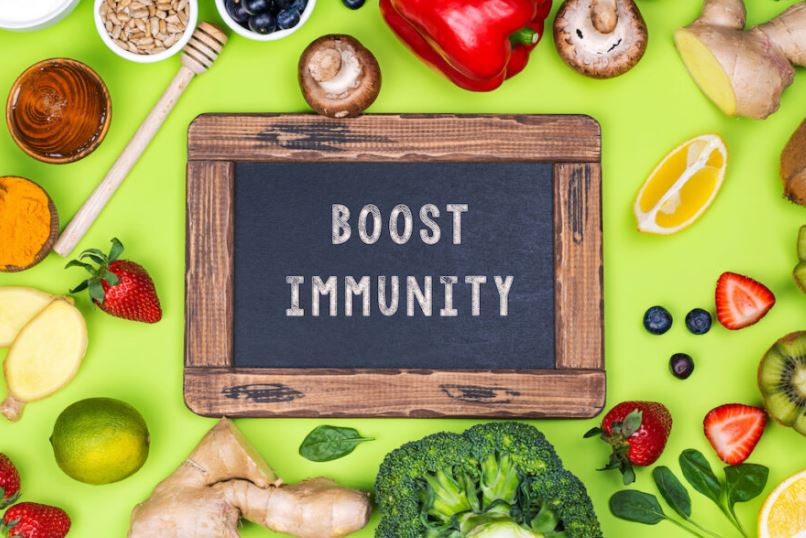
- Citrus Fruits: Oranges, grapefruits, and lemons are brimming with Vitamin C, a potent antioxidant that strengthens your immune system and helps fight off infections. Vitamin C also plays a role in collagen production, which is essential for healthy skin and wound healing.
- Garlic and Onions: These pungent members of the allium family contain allicin, a compound with immune-boosting properties. Studies suggest allicin may help reduce the severity and duration of the common cold.
- Yogurt with Probiotics: The good bacteria in yogurt, known as probiotics, support gut health, which is intrinsically linked to a strong immune system. Probiotics help maintain a healthy balance of gut flora, which acts as a first line of defense against harmful pathogens.
Detoxification and Gut Health
- Cruciferous Vegetables: Broccoli, cauliflower, Brussels sprouts, and kale are rich in sulforaphane, a compound that helps your body detoxify by aiding enzyme production. These enzymes help eliminate harmful toxins and carcinogens from the body.
- Leafy Greens: Powerhouses of chlorophyll, leafy greens like spinach and kale help cleanse the body and support gut health. Chlorophyll acts as a natural detoxifier, aiding in the elimination of heavy metals and environmental toxins.
- Fermented Foods: Sauerkraut, kimchi, and kombucha are all examples of fermented foods teeming with beneficial bacteria. These probiotics promote a healthy gut microbiome, aiding digestion, nutrient absorption, and overall gut health.
Glowing Skin and Strong Hair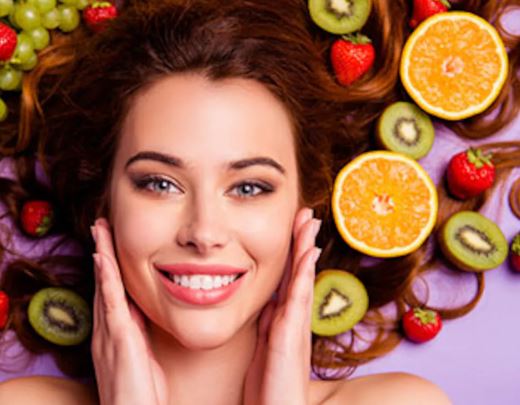
- Fatty Fish: Salmon, sardines, and mackerel aren’t just brain food; they’re also beneficial for healthy hair and skin. The Omega-3 fatty acids in these fish contribute to scalp health, promoting hair growth and preventing dryness.
- Hydration: While not technically a food, water is essential for healthy skin and hair. Proper hydration helps flush toxins from the body, keeping your skin plump and glowing. Aim for eight glasses of water per day for optimal results.
- Healthy Fats: Avocados, nuts, and seeds are all excellent sources of healthy fats like Vitamin E. Vitamin E acts as an antioxidant, protecting skin cells from damage and promoting a healthy, youthful appearance.
Remember:
- While these foods offer targeted benefits, a balanced and varied diet is key to overall health.
- Consult a doctor or registered dietitian for personalized dietary advice to address specific health concerns.
- Don’t forget about portion control! Moderation is key, even with healthy foods.
By incorporating these functional foods into your diet, you can take charge of your health and well-being, fueling your body for optimal performance and a lifetime of vitality.
Resources:
Absolutely, here are some references to support the information in your article:
- Umlauf, M. G., et al. (2011). Role of dietary n-3 and n-6 fatty acids in cognitive function: Literature review of human studies. https://pubmed.ncbi.nlm.nih.gov/11795850/ This research review explores the connection between Omega-3 fatty acids found in fish and cognitive function.
- McKay, A., & Deakin, J. (2002). The role of the gut microbiome in immune health and disease. https://www.ncbi.nlm.nih.gov/pmc/articles/PMC8001875/ This article delves into the gut microbiome and its crucial role in immune health.
- Cleveland Clinic. (2022). Skin health: Tips for a healthy complexion. https://www.mayoclinic.org/healthy-lifestyle/adult-health/in-depth/skin-care/art-20048237 This resource from the Cleveland Clinic offers a science-backed approach to achieving healthy skin, including the role of diet.
- National Institutes of Health. (2020, December 3). Dietary Guidelines for Americans, 2020-2025. https://www.myplate.gov/ While not directly cited, the Dietary Guidelines for Americans provides a helpful foundation for a balanced and healthy diet.
